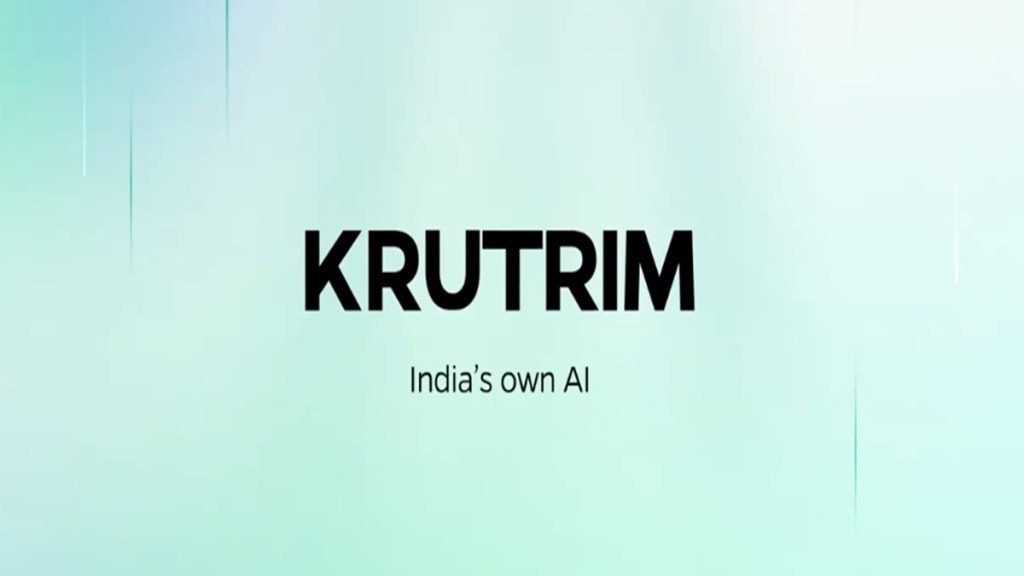Ola founder Bhavish Aggarwal’s AI startup, Krutrim, on Saturday, announced a slate of offerings aimed at driving AI innovation in India.
The company unveiled Krutrim Cloud, providing access to large language models, AI compute infrastructure, and location services APIs.
The firm also launched a standalone Android app for its AI chatbot, with an iOS app expected soon.
With this, the company aims to develop full-stack AI capabilities that will allow enterprises, researchers, and developers to develop new-age technology products at a fraction of current costs, said Bhavish Aggarwal, founder of Krutrim and Ola.
Krutrim AI cloud services, dubbed “Krutrim Cloud”, will offer developers and enterprises access to advanced GPU resources and hardware for accelerating AI projects and improving productivity.
Developers will have the ability to monitor usage, manage resources, and scale up or down based on project needs.
Krutrim will also offer APIs with inferencing capabilities, enabling the creation of generative AI applications. The platform will host leading open-source AI models, including Krutrim’s own, and ones from global players like Microsoft Azure, Google Cloud, and Amazon Web Services.
One of the key offerings of the full stack is Model-as-a-Service (MaaS), which will allow developers access to Krutrim’s foundational language models as well as open-source models hosted on its cloud. These models, coupled with Python SDKs, are designed to enable creating India-specific AI products by leveraging Krutrim’s expertise in understanding Indian languages and cultural context.
Additionally, Krutrim Cloud will offer GPU-as-a-Service, allowing enterprises and developers to train, fine-tune and serve their AI models on state-of-the-art computing infrastructure.
For enterprises focused on location-based services, the platform will provide application programming interfaces (APIs) and software development kits (SDKs) like Places API for finding locations, Tiles API for loading maps efficiently, Routing APIs for turn-by-turn directions, and Navigation SDKs.
Krutrim also launched a mobile app for its AI assistant built on the company’s own large language model trained on over 2 trillion tokens of Indian language data. The assistant currently understands and generates responses in over 10 Indian languages, with plans to expand to all 22 scheduled languages. It can integrate with other apps, adapt to user preferences, and provide personalised suggestions.
The company envisions creating a comprehensive maps platform supporting broader tech and economic advancement initiatives in India. It also plans to develop MapGPT for natural conversations with location-aware AI assistants and add community-driven features for real-time traffic/road updates.
“With Krutrim, our enterprises and developers will no longer have to be dependent on complex and cost-heavy western cloud platforms, which are not optimised for the Indian use cases. Our Krutrim assistant app will revolutionise the adoption of GenAI with its ability for a seamless integration into everyone’s life by solving the complexity and fragmentation often experienced with digital tools and services,” Aggarwal said.
“With today’s launch, we are now the cheapest open source cloud service provider in the world,” Aggarwal claimed.
However, the company is yet to unveil its pricing strategies for its offerings. A full fledged launch is expected in a matter of a few weeks, the company added.
The company also plans to execute its AI vision, in a more sustainable way than global players, Aggarwal revealed.
“Globally, data centres represent about 4-5% of total electricity usage. We aim to execute our vision in a more sustainable way than any of the existing global players. We are building our own technologies to do energy management, to make the most efficient data centres in the world. And I am willing to compete with Google, Microsoft, OpenAI or any other global player in this regard,” Aggarwal added.
The firm also aims to develop indigenous data centres, server-computing, edge-computing, and even supercomputers, with plans to design its own custom silicon and chips. One such data centre will open up in Bengaluru. 3-4 other locations will also come up in the near future. Prototypes for its own silicon chip are scheduled for mid-2024, with a production roadmap set for the end of 2025.
“We are designing our own silicon for both the GPU type workloads, as well as the CPU or a general purpose compute type workload,” Aggarwal added.
The company has already unveiled its family of multilingual LLMs, including Krutrim base and the larger, multimodal Krutrim Pro, slated for launch in Q4 FY24. Earlier this year, the startup achieved unicorn status after disclosing a $50 million financing round at a $1 billion valuation, led by Matrix Partners India, an early backer of Aggarwal’s other ventures, Ola Cabs and the IPO-bound Ola Electric.









